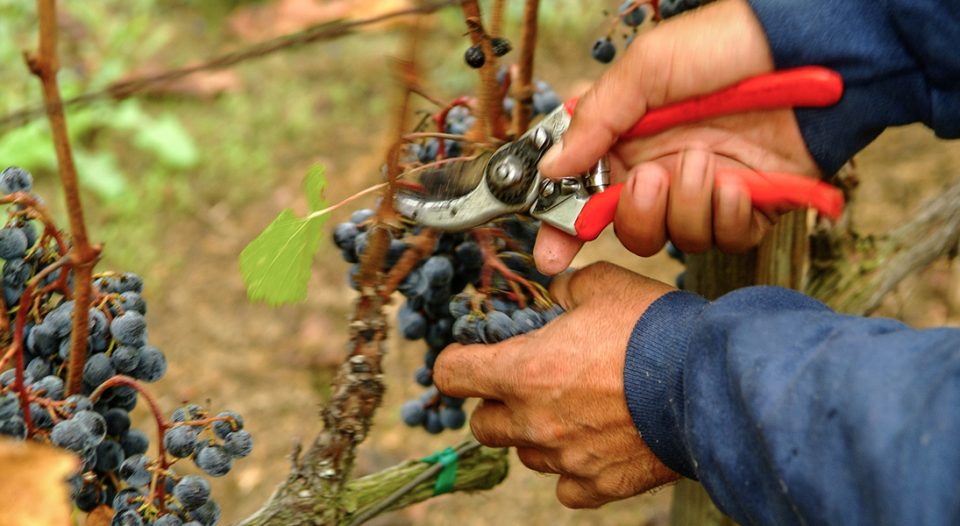Lectionary blog for Sept. 20, 2020
Sixteenth Sunday after Pentecost
Jonah 3:10-4:11; Psalm 145:1-8;
Philippians 1:21-30; Matthew 20:1-16
The parable of the landowner and the day laborers is one of my very favorites. Jesus, the master teacher, taught a lesson that was so fraught with human drama that it still makes many of us anxious when we consider the implications today. I contend that this parable, more than any other, undermines human notions about fairness to point out how God’s grace is a work of radical justice, equity and love. As Lutheran Christians, I think this parable must be the core of our image of Jesus and the kingdom of heaven because it makes clear that there is absolutely nothing that we can do to justify God choosing us. And yet, each person is called to work in and for the kingdom as a result of their “chosenness.”
In first-century Galilee, Judea and Perea (where Jesus is when he tells this parable), there has been an economic crisis, and many small-time farmers have had their lands seized by wealthy landowners (see Oakman 1986 and Fiensy 1991). Many of these dispossessed farmers became day laborers, desperate for work to feed themselves and their families. Jesus’ hearers would have been able to identify with the day laborers’ plight.
This scene still plays out today. Whether outside the home improvement stores in Atlanta or in the Takadoum neighborhood of Rabat, Morocco, every day, men, usually foreigners, wake up long before the sun, leave families if they have them, and go and wait to be chosen for work. Usually the people chosen first are those who have been fortunate enough to be chosen before. Contractors will continue to hire the men who put in a hard day’s work without issue. These day laborers approach known trucks with confidence and often swing into the back without much conversation, perhaps only being pointed at. These known workers are usually at the jobsite before sunrise.
Jesus the Messiah says the kingdom of heaven is like a landowner who goes out and hires laborers early in the morning to work his vineyard.
The next to be chosen are the physically impressive newcomers who look like they can handle demanding work. As I’ve watched this scene play out, usually these people are hired around sunrise. Then the day slows down. Several people who didn’t get picked drift away, knowing that today isn’t their lucky day. Others stay. Sometimes, around 9 or 10 a.m., there is another wave of hiring when a job turns out to be bigger than expected or a new job opens up. But by this time, only the men who have no other prospects for the day are still waiting around, hoping against hope that someone will hire them. Usually after this stage of the day, everyone who hasn’t been hired leaves.
But, on rare occasions, someone stays through the heat of the day in the all-but-abandoned assembling area for day laborers. These folks are usually small, slow-moving, ill-tempered or some combination of the above. But they are also desperate. There is no other reason to be hanging around a labor pool after the morning selections. But they wait because they need the work and are absolutely convinced that there is no other way to feed themselves or their families. And you have not truly seen a smile on this earth until you see someone swing into the back of a pickup truck at 5 p.m. to do a few hours of labor after a long day of rejection.
Jesus the Messiah says the kingdom of heaven is like a landowner who goes out and hires laborers early in the morning to work his vineyard. The parable doesn’t say who is hired, but the patterns are unlikely to have changed much over the centuries. But even without additional need for laborers, the kingdom landowner returns to the labor market at 9 a.m., noon and 3 p.m. to hire more workers. This landowner is cutting into his profits without additional need of labor. But the gracious landowner wants to provide for as many workers as possible.
Finally, the landowner returns to the market at 5 p.m. and asks those desperate people why they are still standing around. They reply that they have faithfully waited for work, but no one has chosen to hire them. That Jesus chose to include this pointed detail reminds us of the tenacity of those who have waited to be invited into the kingdom. The landowner finally clears the market of all who are still waiting to be chosen and takes everyone into his vineyard.
When the time for payment comes, the landowner first pays those chosen last. They receive the same amount as those who were picked first and worked all day. This frustrates the laborers who were chosen first and worked all day. They complain: “You have made them equal to us!” (Matthew 20:12). That is precisely the point of the parable. Some of us are called to lives of long, difficult obedience. Others of us are welcomed into the kingdom with our dying breath. Nothing we do or don’t do makes us the least bit more or less worthy of God’s grace—otherwise it would not be grace.
Our responsibility is to work faithfully and gratefully at the tasks to which we have been called, helping the kingdom of God bear fruit. When others join, we are only to welcome them with joy.





